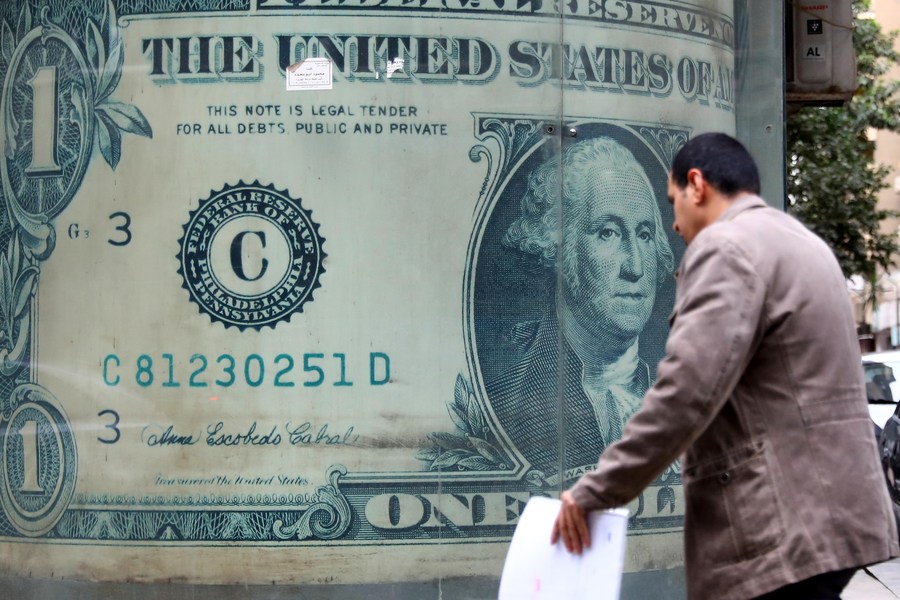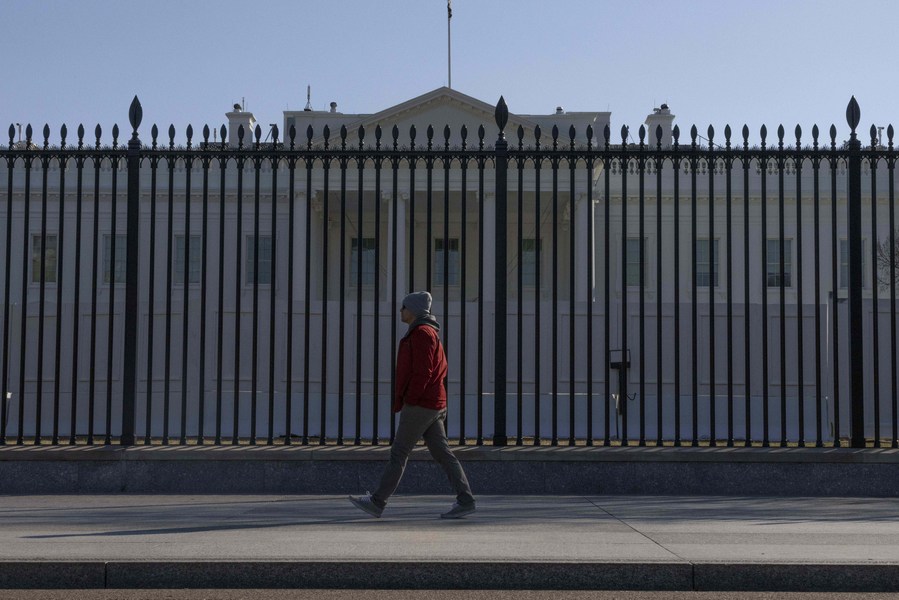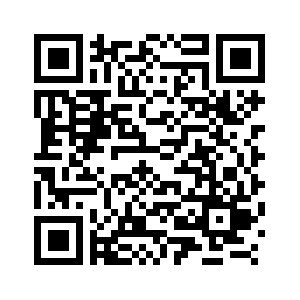
A man passes a foreign exchange office in Cairo, Egypt, Dec. 25, 2022. (Xinhua/Ahmed Gomaa)
Given the number of sanctions it has imposed, the United States is the world's preeminent "sanctions lord."
by Xinhua writer Ma Qian
BEIJING, June 9 (Xinhua) -- America's addiction to slapping sanctions is losing control.
Given the number of sanctions it has imposed, the United States is the world's preeminent "sanctions lord."
As of the beginning of this year, nearly 12,000 entities were under U.S. sanctions, revealed the Washington Post in an opinion piece on Monday.
The article used statistics from the U.S. Treasury Department. In 2022, the Treasury Department added 2,549 new designations, while in late 2021, it was estimated to have slapped sanctions on 9,421 organizations and individuals, a roughly 900 percent increase over the past 20 years.
The United States has a long tradition of economic coercion. It had designed sanctions as "a coercive instrument for the modern world," as former U.S. President Woodrow Wilson put it in 1919, to suppress its potential rivals and manipulate the fabric of the global economy.
Over the past decades, Washington has greenlighted an onslaught of domestic laws and executive orders to enforce extraterritorial jurisdiction over entities and individuals of other countries.
Bypassing international rules and laws, such arbitrary judicial and executive practice gives teeth to various forms of U.S. sanctions at Washington's disposal, exposing the true colors of U.S. long-arm jurisdiction.

A Zimbabwean man holds a placard outside the United States Embassy compound on the Anti-Sanctions Day in Harare, Zimbabwe, on Oct. 25, 2022. (Xinhua/Shaun Jusa)
From the International Emergency Economic Powers Act, the Global Magnitsky Human Rights Accountability Act, to the Countering America's Adversaries Through Sanctions Act, the United States of America has turned itself into "the United States of Sanctions."
In recent years, a multitude of coercive economic measures, such as trade tariffs, export controls and foreign investment scrutiny, have become "the bedrock of U.S. diplomacy," said Agathe Demarais, global forecasting director of the Economist Intelligence Unit, in her 2022 book "Backfire: How Sanctions Reshape the World Against U.S. Interests."
However, economic coercion has been proven ineffective in reversing the decline of U.S. global dominance. Such efforts have backfired and caused harm to America's own interests.
"The over-use of sanctions is fueling resentment against Washington around the world, leading U.S. friends and foes alike to rethink their ties to America and find alternative avenues for doing business," Demarais wrote.
Between 1970 and 1997, unilateral U.S. sanctions achieved foreign policy goals in only 13 percent of the cases where they were imposed, according to a study by the Peterson Institute for International Economics. These sanctions cost the United States 15 billion to 19 billion U.S. dollars annually.

A man walks in front of the White House in Washington, D.C., the United States, on Feb. 15, 2022. (Xinhua/Aaron Schwartz)
Even the largest-scale economic sanctions by the United States and its European allies in recent history have only limited efficacy against Russia, Nicholas Mulder, an assistant professor of modern European history at Cornell University, wrote in a recent article published by The New York Times.
The professor owed the result to Russia's policy response, size of the economy, commercial position and the importance of nonaligned countries in the world economy.
A toxic political culture in Washington is behind America's runaway addiction to sanctions.
Partisan politics has eroded Washington's capability to flesh out feasible policy measures for either internal or external affairs.
Politicians on both sides of the aisle have stuck to growing hawkishness towards America's presumed strategic competitors to grab the slightest edge over one another. And that has long been a "politically correct" tradition in the "city upon a hill."
Military hawkishness and protectionist impulses are strong in America, The Economist magazine said in a recent article, adding that the country's politics are decentralized and raucous, as state lawmakers are burnishing their credentials by sounding hawkish.
Furthermore, the country's declining national strength over the last few years has sparred Washington's elites to adopt more short-term, zero-sum geopolitical strategies, including self-serving approaches like sanctions.
The world's sole superpower has found itself on pins and needles, fearing losing its erstwhile global supremacy. The anxious U.S. administration even openly negated the market economy, globalization and free trade in the "New Washington Consensus," elaborated by National Security Advisor Jake Sullivan in April. This shift in America's foreign policy demonstrates a zero-sum mentality, aiming to use economic coercion to contain competitors.
However, the modern "sanctions lord" faces increasingly complex challenges when using such weapons. Washington should be wise to reconsider before resorting to this usual method of coercion.■












